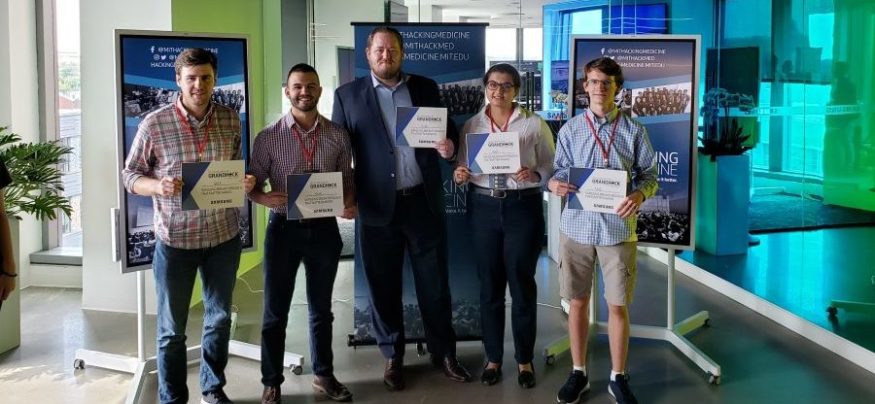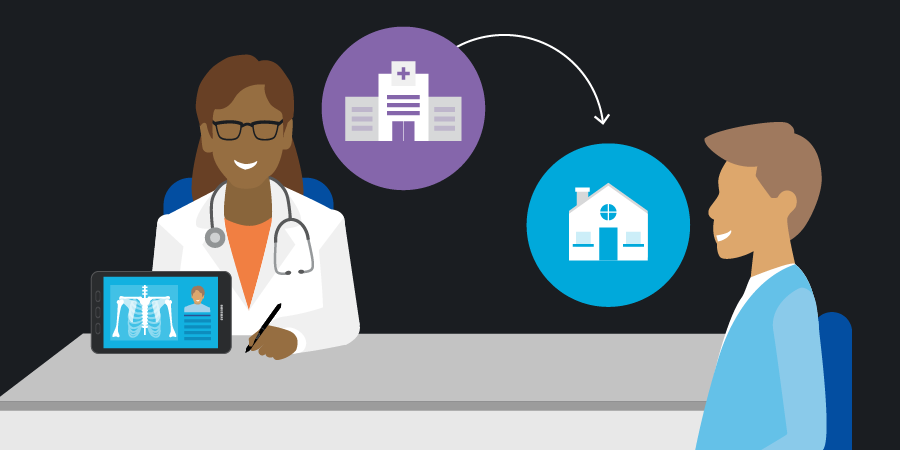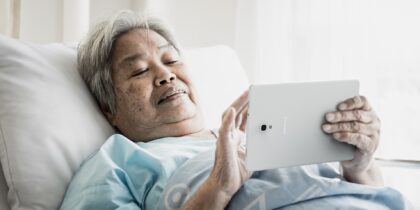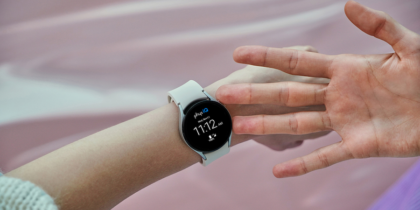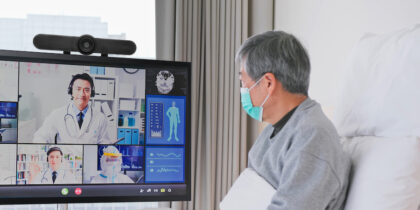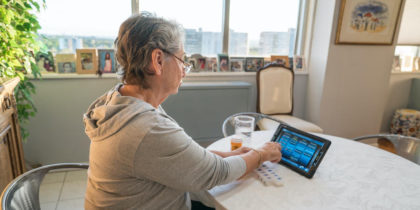Approximately 6,000 veterans die by suicide each year, and about 70 percent of them do not receive Veterans Administration (VA) care. Finding a new way to support veterans before they’re in crisis, especially if they don’t come into the VA for their care, is the challenge that Bernard Baird, Margaret Bertoni, David Hook, Alex Kreidler and Ronan Kelly sought to tackle together as team SAIF at the recent MIT Hacking Medicine D.C. Grand Hack. Their work won a Samsung Breakthroughs That Matter Award in the category of Mental Health & Professional Burnout.
A Modern Solution to a Pervasive Problem
SAIF’s artificial intelligence (AI) platform is a concept for identifying mental and emotional distress and initiating early intervention. It is a solution built upon a cloud-based platform that integrates VA health record information, biometric and activity data, as well as patient-reported outcome measures (PHQ9, GAD7), to monitor a veteran’s emotional state for indicators of deterioration that require intervention. The platform uses information already furnished by the veteran to their mental health provider and then applies an algorithm to further track, trend and correlate the data.
How Mobile Solutions Improve Patient Experience
Get your free guide to enhancing the patient experience with mobile technology. Download Now
“A key benefit of the SAIF solution is that it integrates previously unavailable data, such as sleep cycle tracking or screen time, gathered via Samsung Galaxy smartphone, wearable and Bixby solutions,” said David Hook, SAIF team lead. “Access to these richer data sets means faster and more effective treatments for those most in need.”
When the algorithm identifies an escalation in risk to the patient, it prompts intervention such as sending a notification to their mental health provider or connecting the veteran to a peer network. If there is a serious threat of harm, the solution can escalate directly to the Veterans Crisis Line. Importantly, veterans don’t have to worry about data risks, as information is securely passed to the VHA using login credentials from MyHealth eVet, and protected on the phone using Samsung Knox.
“We need to make suicide prevention a critical focus right now as a nation. If we can collaborate to find new ways to apply innovative technologies to tackle this epidemic and make a difference in at least one veteran’s life with a solution like SAIF, it’s worth it,” said Hook.
Revolutionizing Healthcare Through Technology
Samsung Breakthroughs That Matter Award winners were chosen based on which solutions most effectively embraced Samsung’s Galaxy Note9, Gear S3, software development kits (SDKs) and the Samsung Knox platform to create a transformative digital health solution with the potential to improve veteran care quality and access. Winning team members received a Note9 smartphone and ongoing access to Samsung Developer Program mentors and resources to continue the development of their solution after the D.C. Grand Hack concludes.
Other winners in the MIT Hacking Medicine D.C. Grand Hack included team CrowdAid in the category of Access to Healthcare for a solution to crowdsource funding for veterans without insurance, and team KeyWatch in the category of Rare and Orphan Diseases for a solution for continuous patient monitoring to reduce misdiagnosis of rare diseases. Past Samsung Breakthroughs That Matter Award Winners include teams Simulacron and Match Perch.
The MIT Hacking Medicine events aim to energize, infect and teach healthcare entrepreneurship and digital strategies to scale medicine as a way to help solve problems worldwide. For more information and upcoming events, visit hackingmedicine.mit.edu.
Learn more about health technology solutions, and get your free guide to modernizing clinical communications with smartphones. For more on veterans’ healthcare innovation, read our recent conversation with the VA’s Entrepreneur in Residence Suzanne Shirley.
